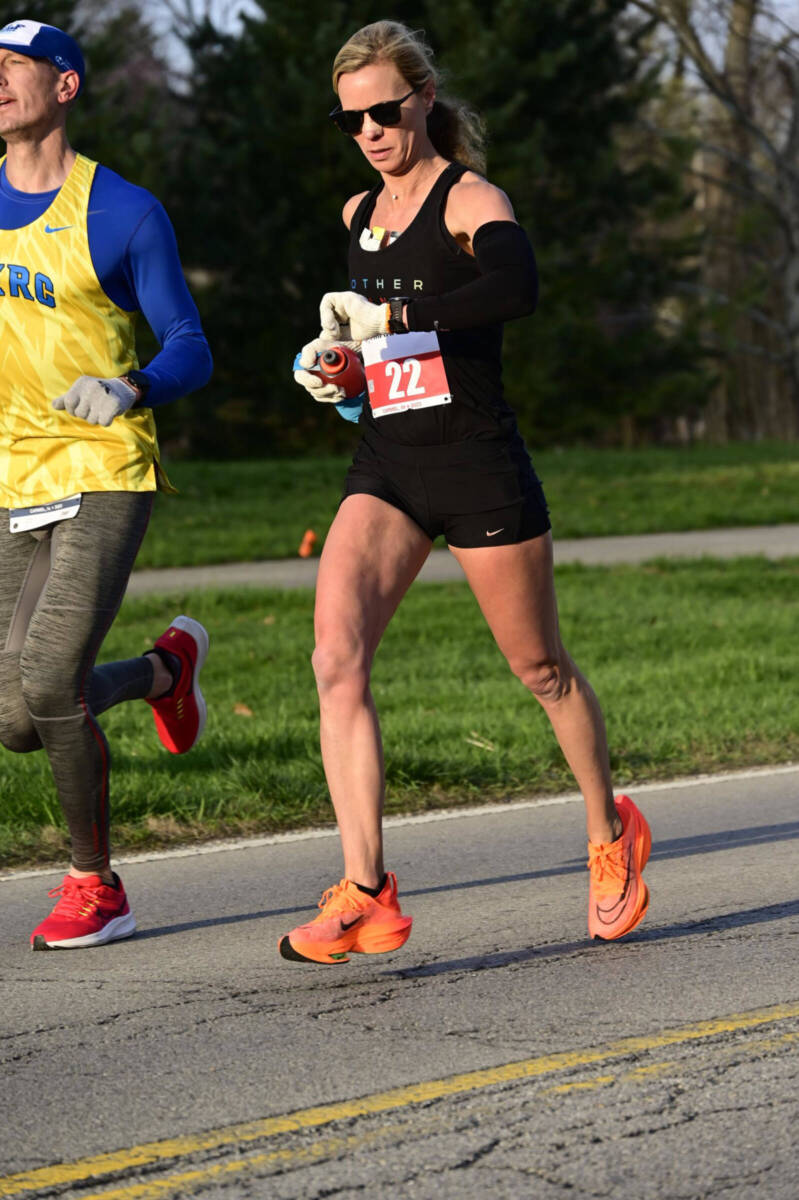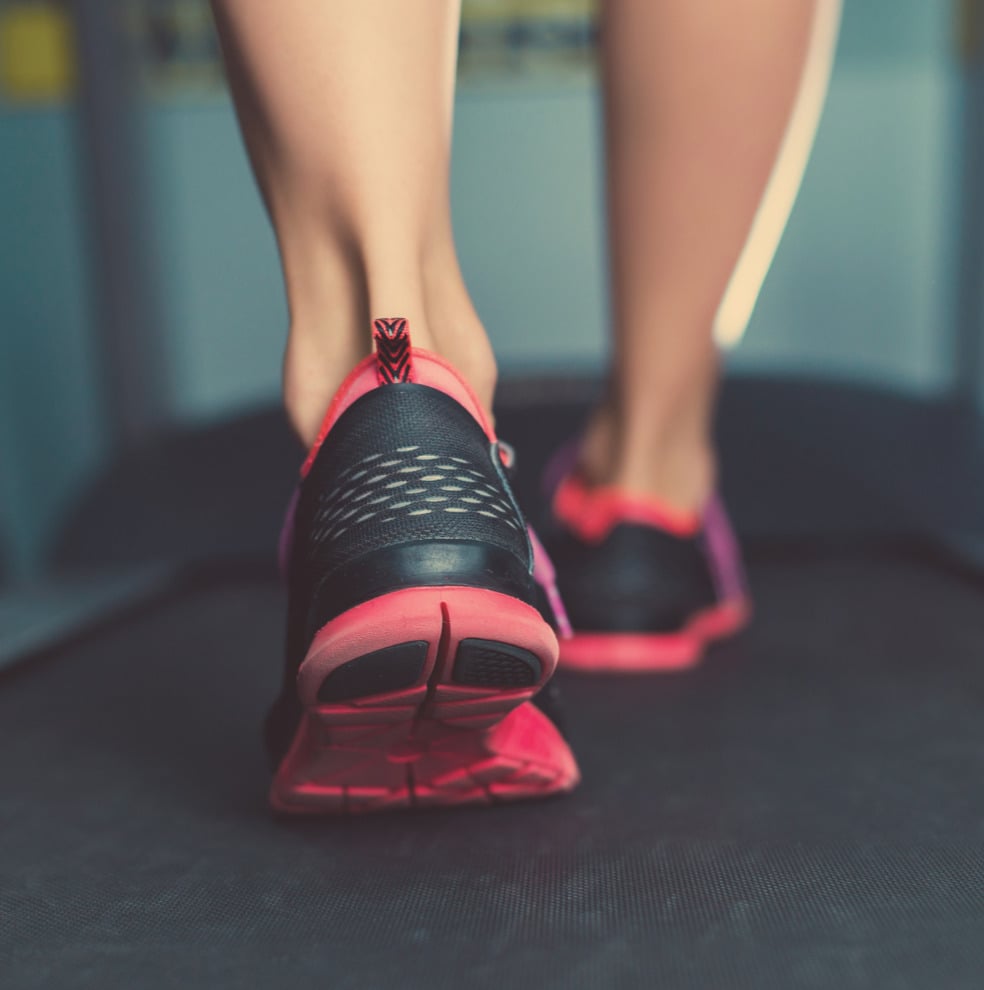Could Your Allergy Medication Be Making You Less Fit?
I have had a couple of athletes borderline freak over a recent study about antihistamines and fitness that finds that taking antihistamines could interfere with running gains. So I went to an exercise physiologist to get his take.
In short, yes taking antihistamines for allergies can inhibit your fitness gains but the timing and dosage of the medication matters.

Having allergies can really mess with your running goals. When you feel miserable, and running outside makes you even more miserable, a runner must choose the lesser of two evils: take an antihistamine to be able to run knowing it may blunt exercise gains? Or not run at all because you feel terrible? (Or, perhaps find a treadmill. I have some fun treadmill workouts here.)
The devil is in the details. So let’s get into it.
Table of contents
Note: I am not a doctor and this is not meant to be medical advice. Consult your physician for their take.
So, what’s this study that shows that antihistamines could blunt your fitness gains?
The study, published in Science, looked at the effect taking an anti-histamine has on exercise gains. Histamine is a naturally occurring compound in the body that plays a role in various physiological processes including immune responses and allergic reactions.
Histamine can also cause blood vessels to dilate, increasing blood flow to the area. So when you take an antihistamine, it stops these compounds from doing this. This is important because blood vessel dilation after exercise is important for muscle recovery and fitness gains.
To conduct the study, the researchers looked at the blood flow research participants had after a 40-minute interval cycle compared to control groups. They found that those who took antihistamines had their post-exercise blood flow reduced by 35 percent.
The researchers then extended the study by 6 weeks to see what chronic use of antihistamines did for fitness gains. It found that the cyclists who used antihistamines every day had smaller fitness gains including:
- an increase of 7 percent versus 12 percent in Vo2 max peak power,
- and an increase of 14 percent versus 33 percent in mitochondrial growth (important for energy production).
The study tested two types of antihistamines: H1 and H2 receptor blockers. H1 blockers are commonly used for allergies and allergic reactions such as Benadryl, Allegra, Zyrtec, and Claritin. H2 blockers are used to treat stomach-related problems caused by too much stomach acid such as Pepcid and Zantac 360. Therefore, those who take meds for acid reflex could also experience blunted fitness gains.
Why were participants who took antihistamines less fit?
Exercise physiologist Dr. Todd Buckingham and 2:25 marathoner explains that histamines are released during exercise and regulate blood vessel dilation. If histamines are blocked during exercise that limits a physiological process called muscle perfusion.
Muscle perfusion is the delivery of oxygen and nutrients via blood to muscle tissue to aid in muscle contraction, energy production, and waste removal.
“If you consume antihistamines, thereby inhibiting the blood vessels from dilating, you will get less blood flow (aka perfusion) to the skeletal muscles. This, in turn, can lead to reduced performance improvement over time,” Buckingham explains.
“In my mind, this is very similar to taking NSAIDS or an ice bath post-exercise. After exercise, there is inflammation in the body. The body then must increase blood flow to the area to help decrease this inflammation. However, if you consume NSAIDs or take an ice bath, you’re not making your body do the work and instead are artificially decreasing inflammation, which will lead to a reduction in performance gains.”
So, what can you do if you must take an antihistamine as an allergy medication?
First of all, consider your antihistamine dose.
The study participants used very high doses of antihistamines (about three times the normal dose of an antihistamine such as Allegra, for example). It can be assumed then that if you take a smaller dose, the blunted fitness effects from your antihistamine on fitness gains are less.
If you must, consider taking a high dose of allergy medication on days of a high pollen count and/or high exposure.
Second, think about if you really need your antihistamine.
Where I live in East Tennessee, the pollen is terrible. It just sits in the valley and makes people sick. So, a lot of people make it a habit of taking antihistamines daily to prevent allergy suffering. If this sounds like you, consider not taking allergy medication unless it is really needed.
Buckingham agrees: “Obviously, there are going to be caveats with this because some people have to take antihistamines. But for those who don’t take it on a daily basis and are concered with fitness gains, it could be an important aspect to consider.”
Third, consider when you take your antihistamine.
Buckingham suggests spacing out the timing of when you take your antihistamine so that your run and medication are far apart.
“This could be similar to lifting weights for runners where you want to keep 6 hours in between running and lifting so you keep the mTor pathway active (important for muscle growth) and allow for muscle growth from lifting weights (running shuts the pathway down),” he explains.
“There could be a similar procedure at play with antihistamines, so if the athlete can separate the run and antihistamine consumption far enough, then maybe there won’t be as big of a detriment to the training.”
Fourth, talk to your doctor.
Before tinkering with your antihistamine, talk to your doctor. They will be able to help you weigh the positives and negatives of taking or not taking your allergy medication or look at alternatives. For example, one of my athletes who takes a high dose of an antihistamine daily and has big goals to qualify for the Boston Marathon in the fall is going to talk to hers about lowering her dose during training this summer.
It may take some trial and error for her to find out what her threshold is–not unlike run training in general. We aim to find what our body can handle and where the rewards outweigh the risks of training stress.
It is important to remember that running is a hobby for most of us. Weigh feeling miserable from allergies vs. potentially being fitter. If you feel terrible, you aren’t going to train as hard so the benefits of skipping your allergy nasal spray or pill may be null.
Do not think of this as an inhibitor. You are not alone. Most people have something they have to navigate with their running–whether it is a bum knee or heat sensitivity or whatever. For me, it is a femoral nerve entrapment.
Most of our complicated bodies have SOMETHING that needs to be worked around or managed. Having allergies and taking medication just maybe yours. My advice is don’t let it get in your head. Do the best you can with the cards you have been dealt, control what you can control, and get after it!






